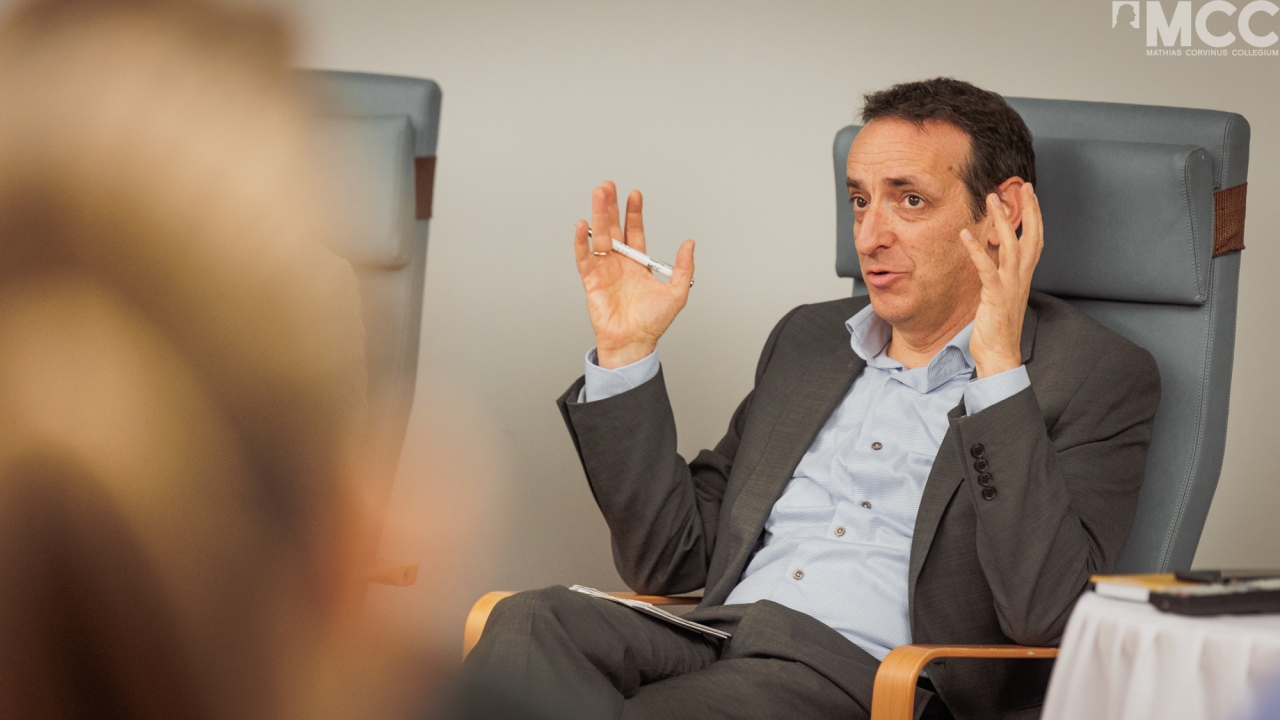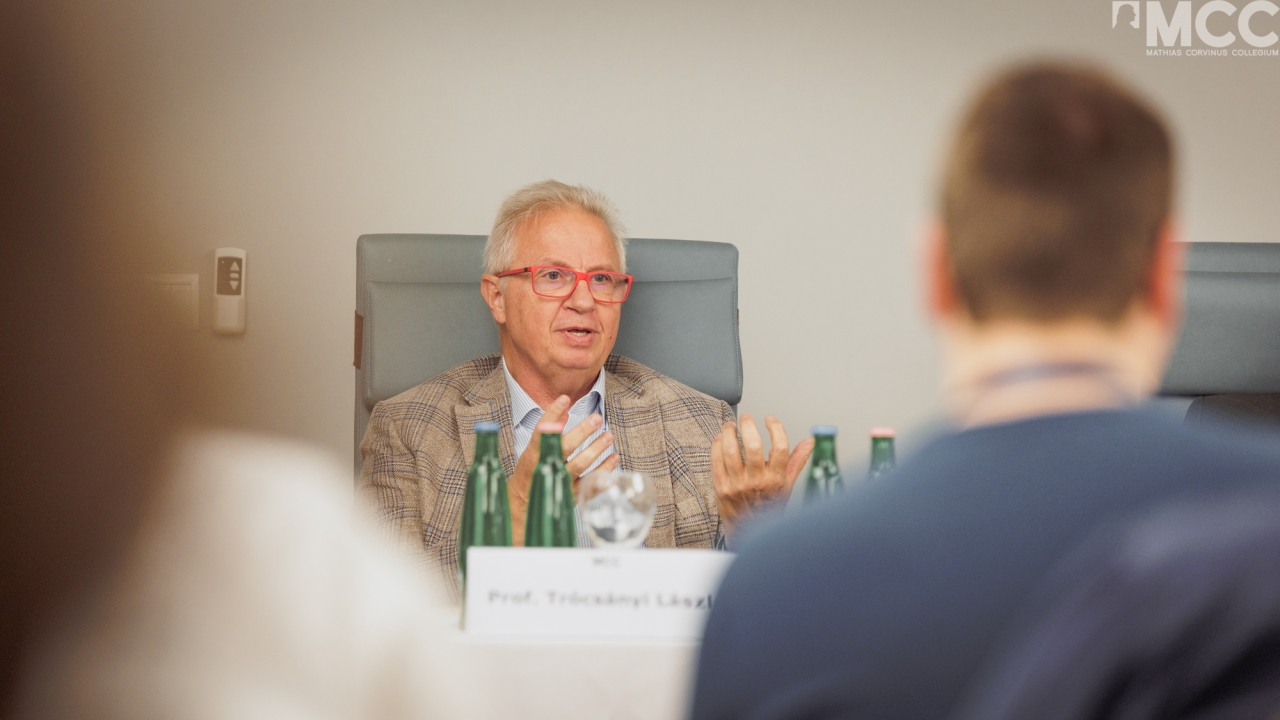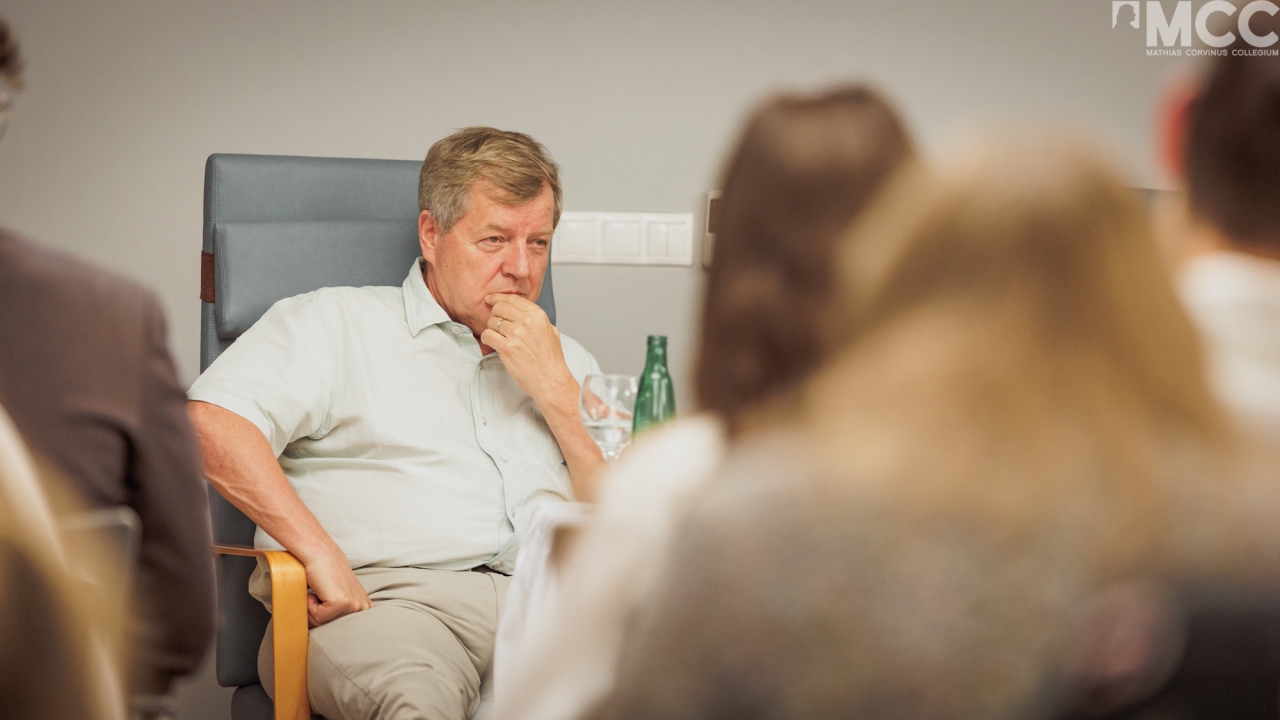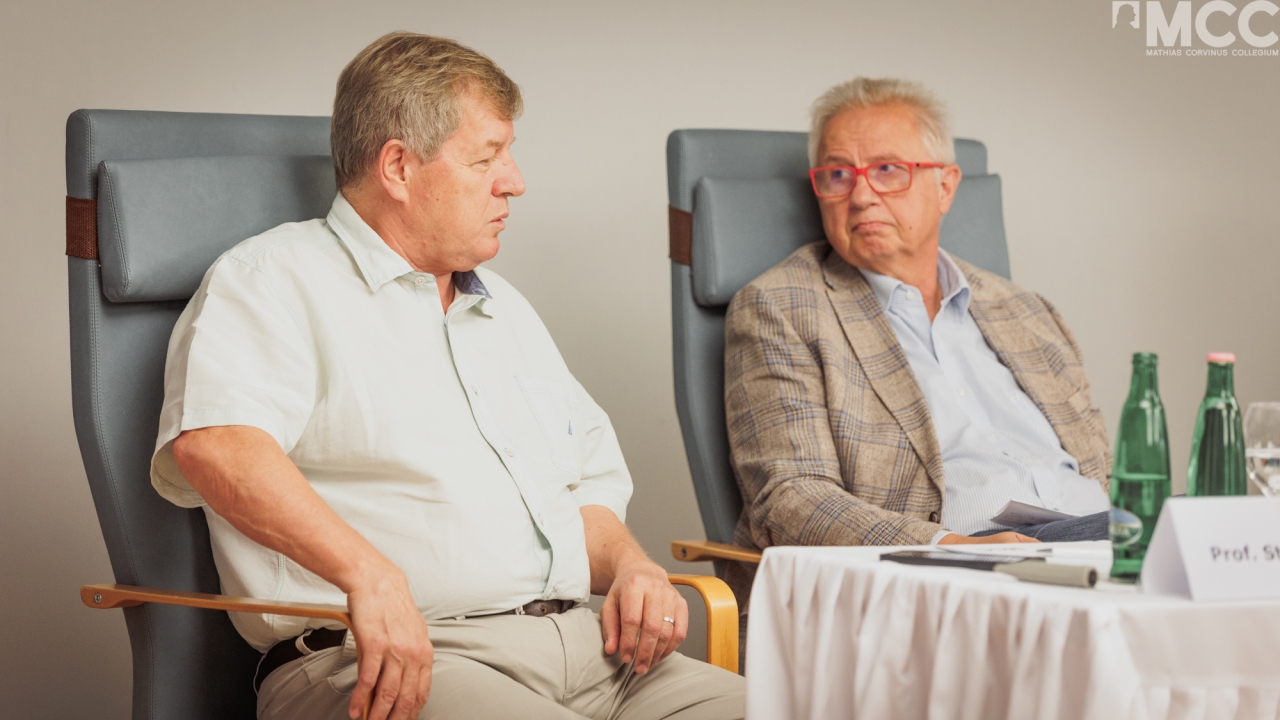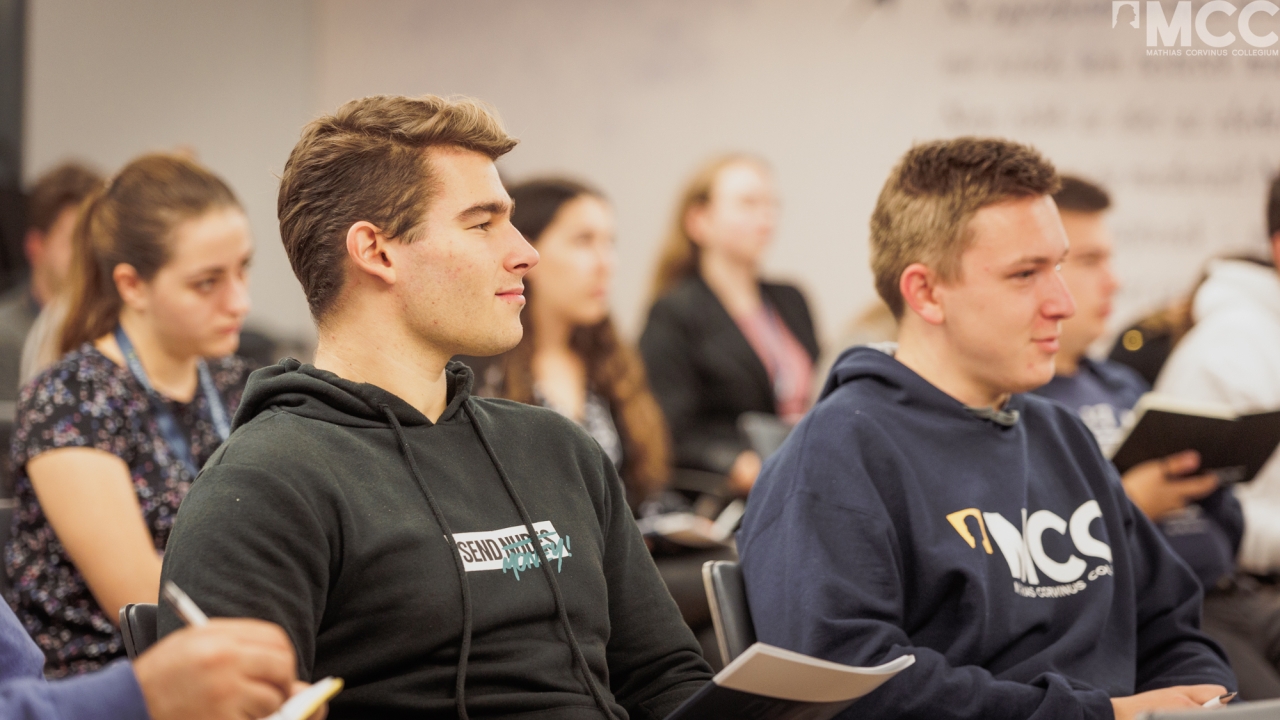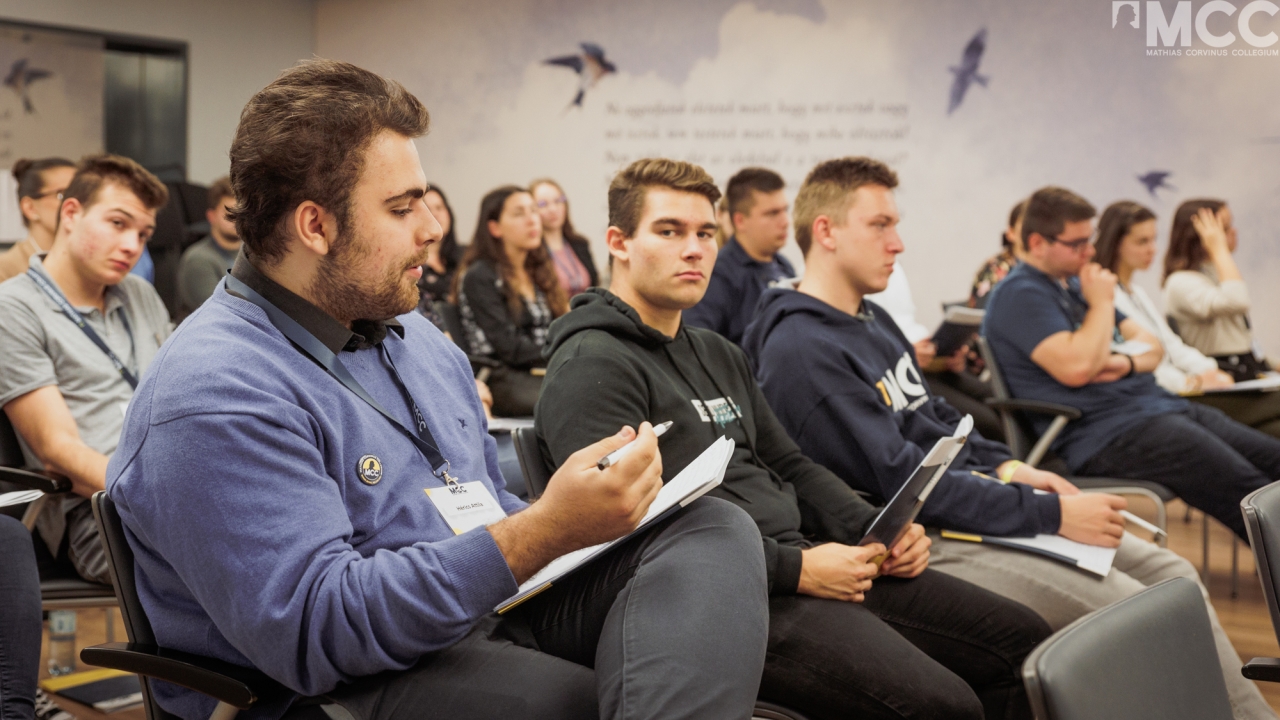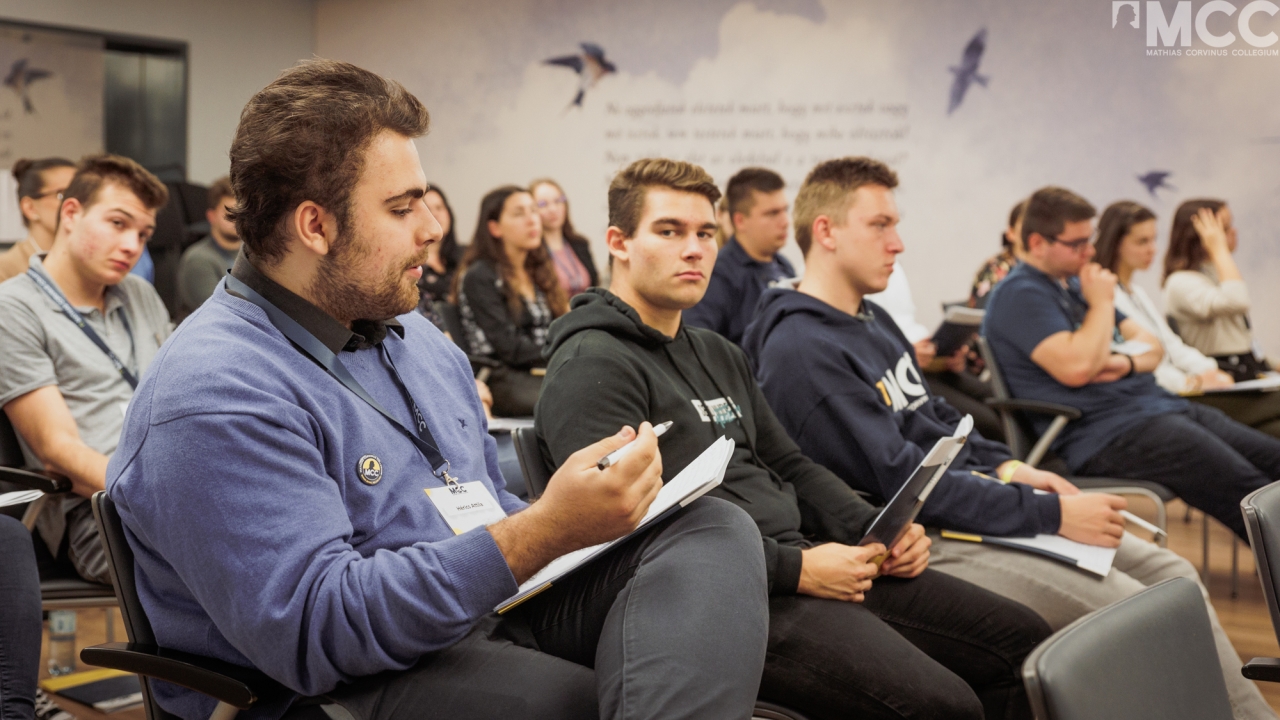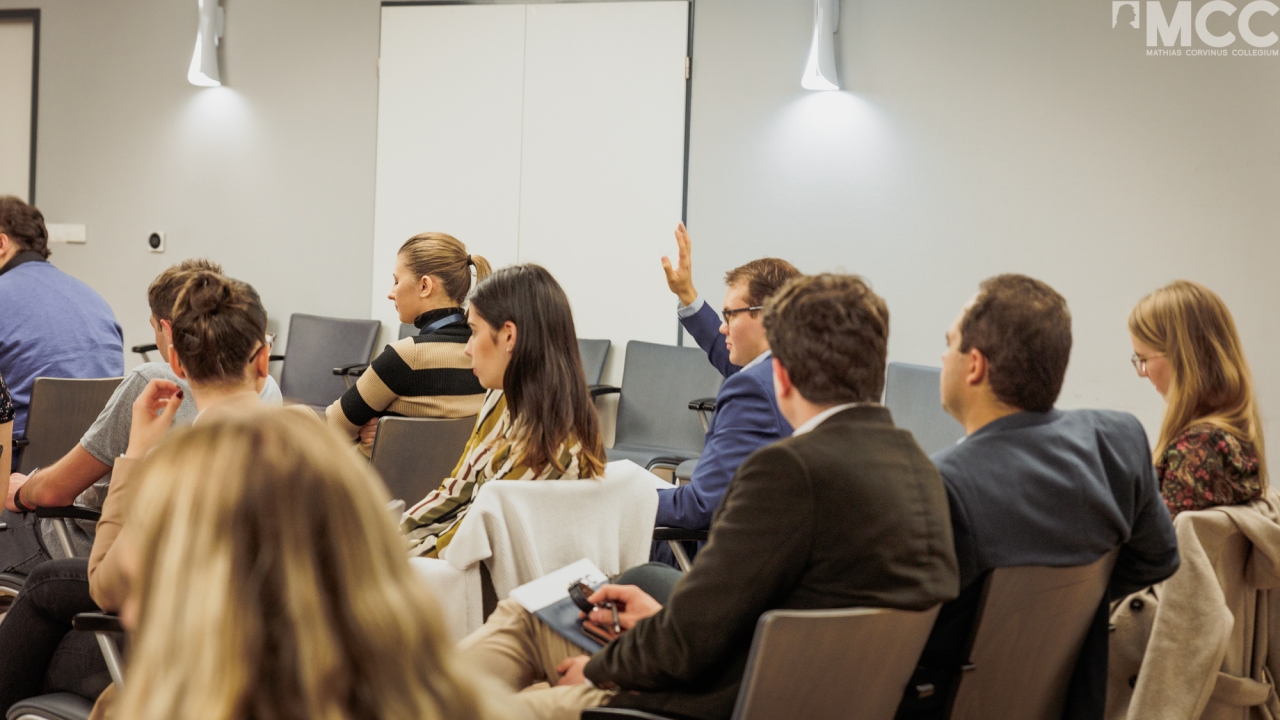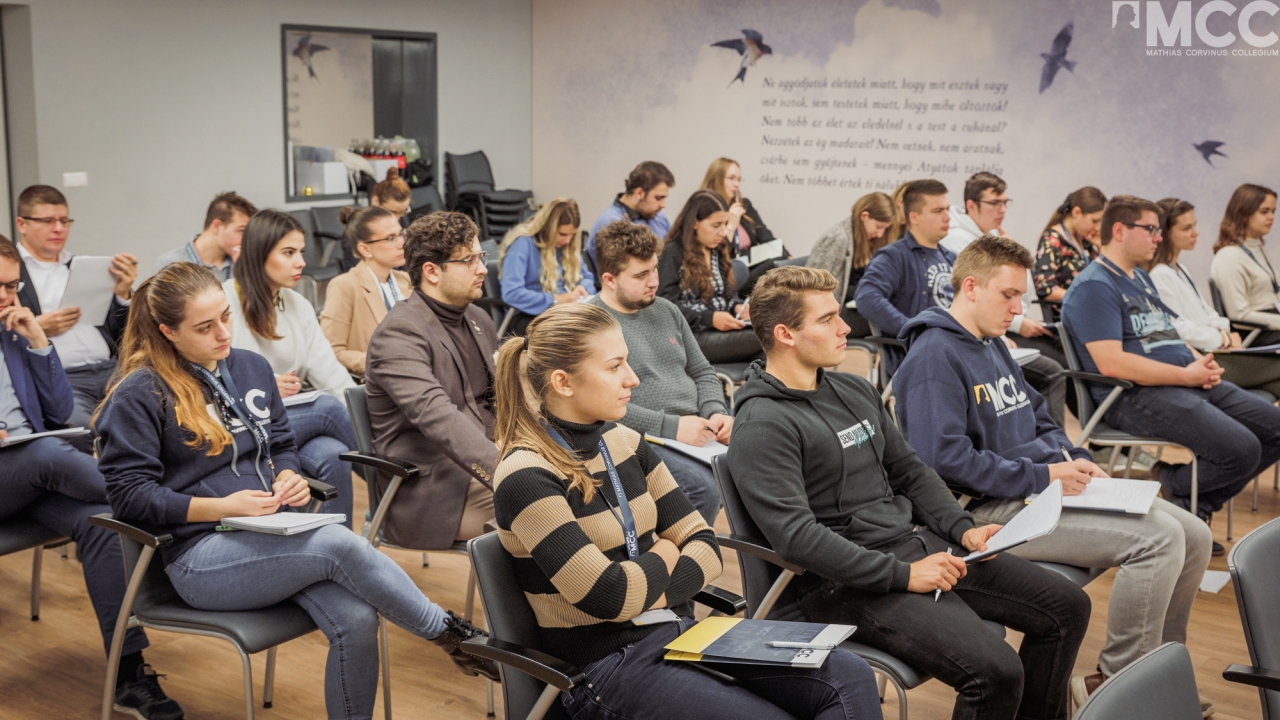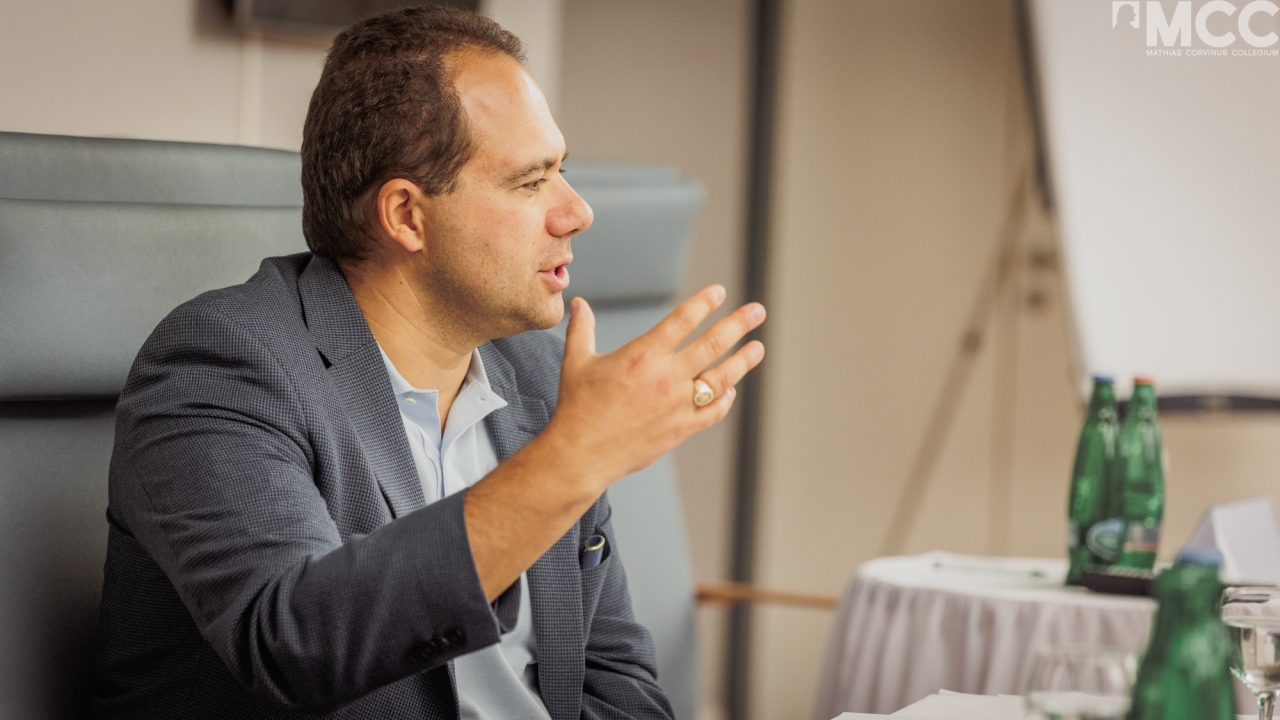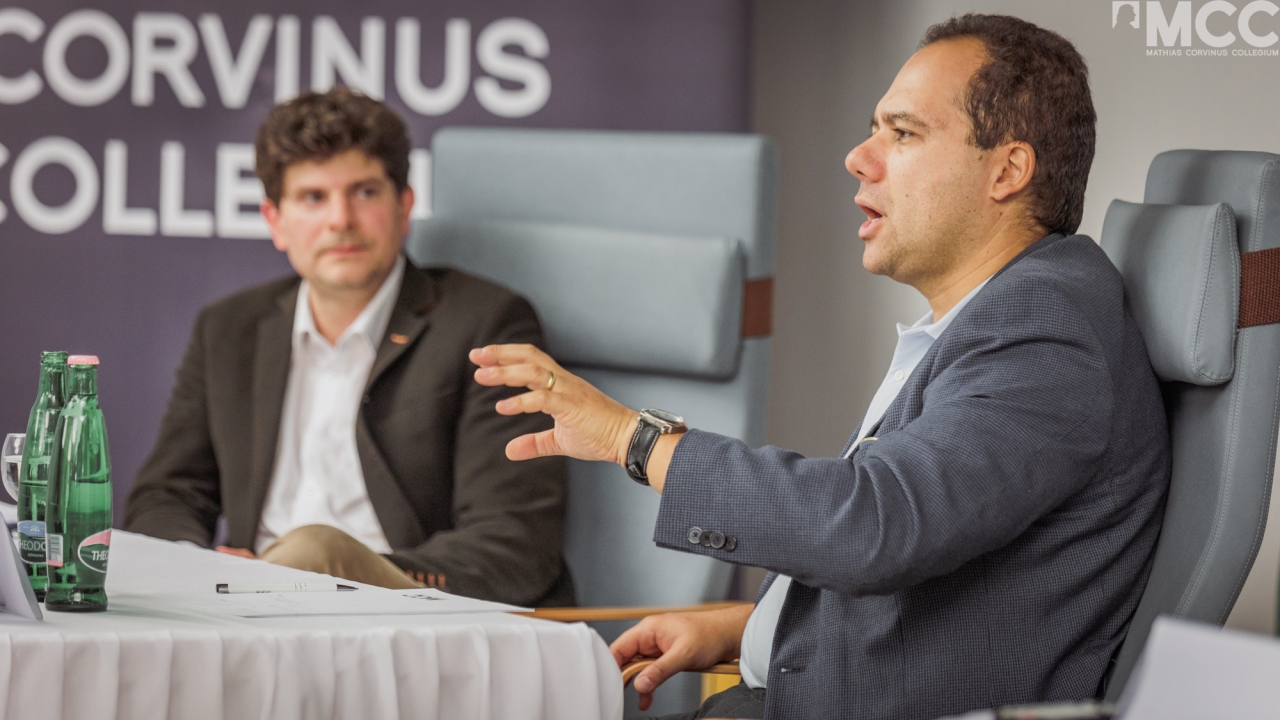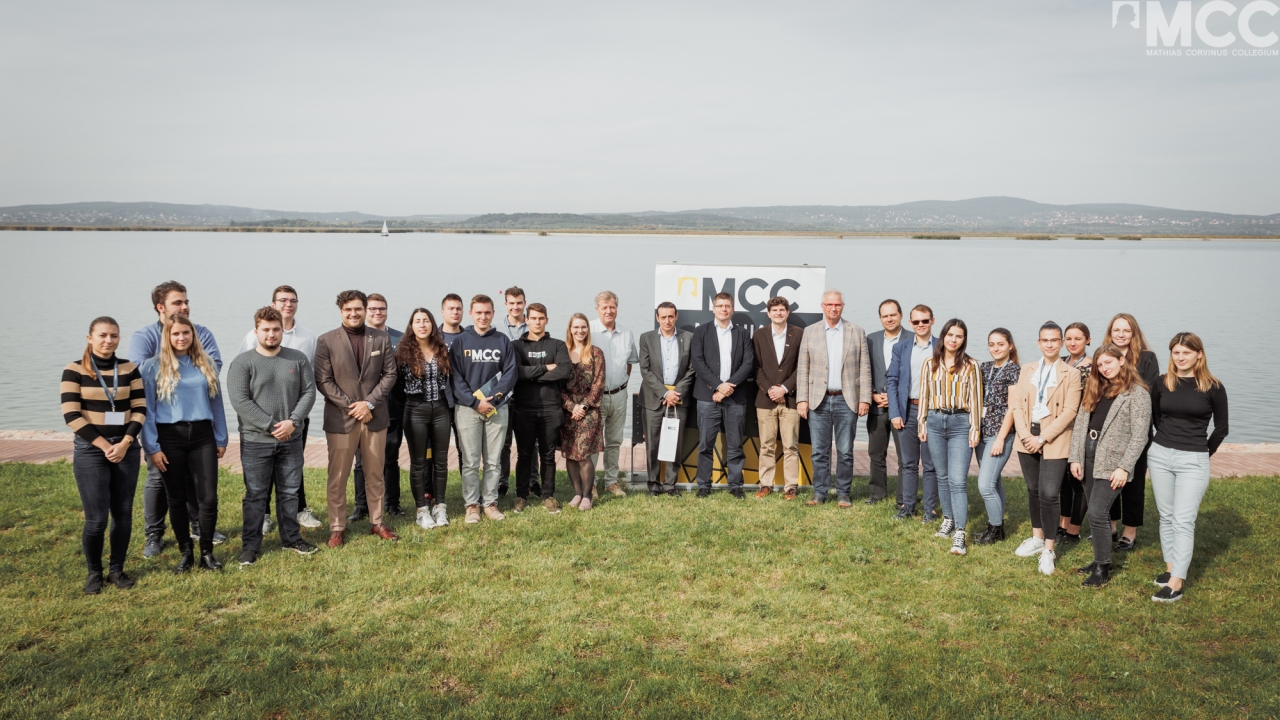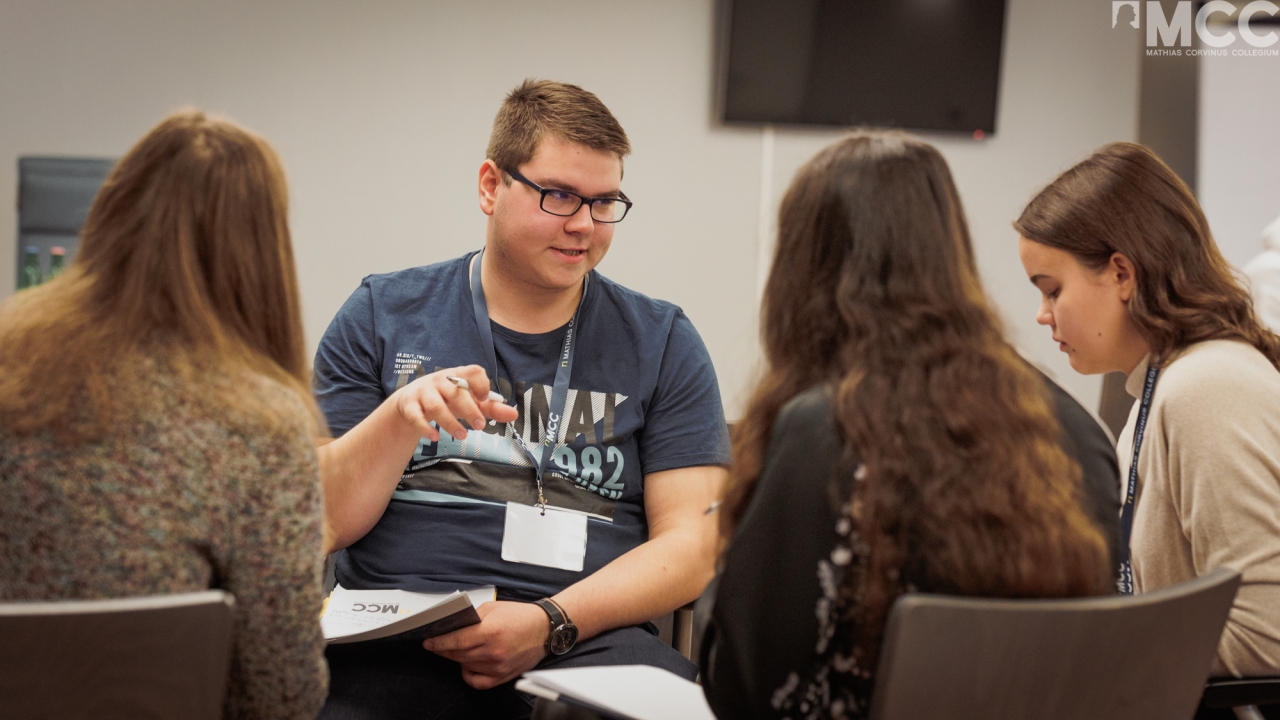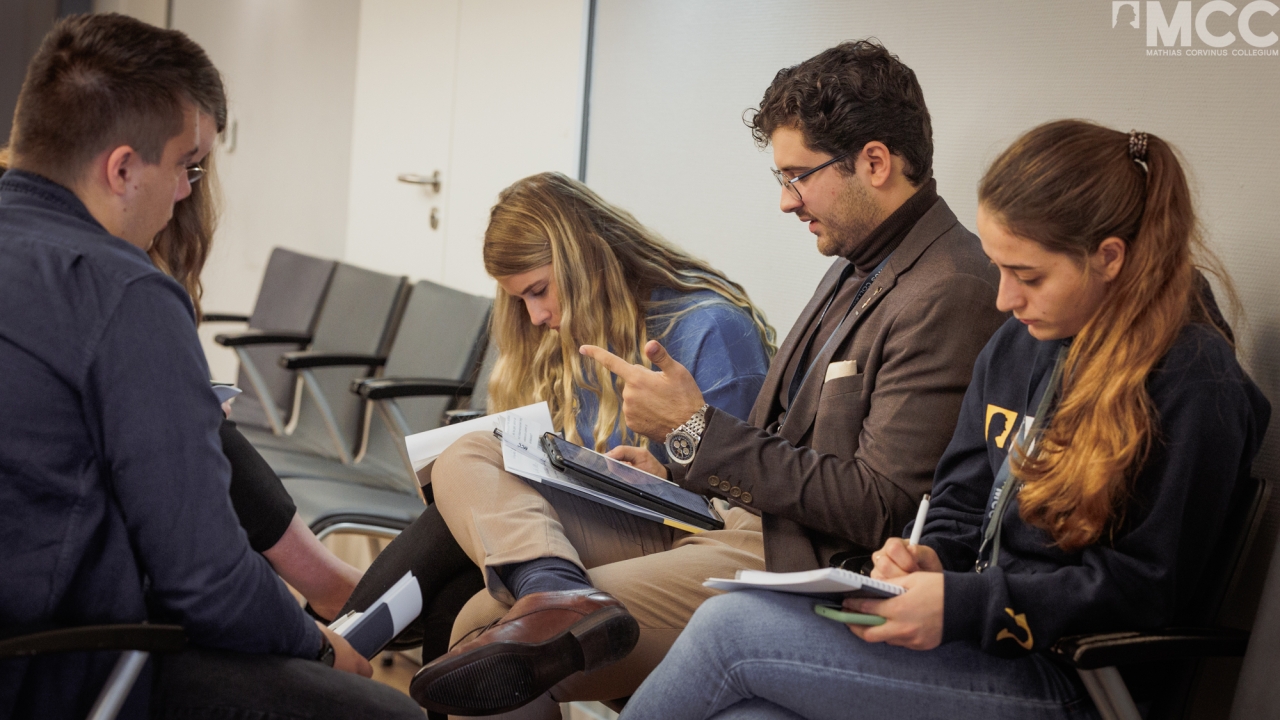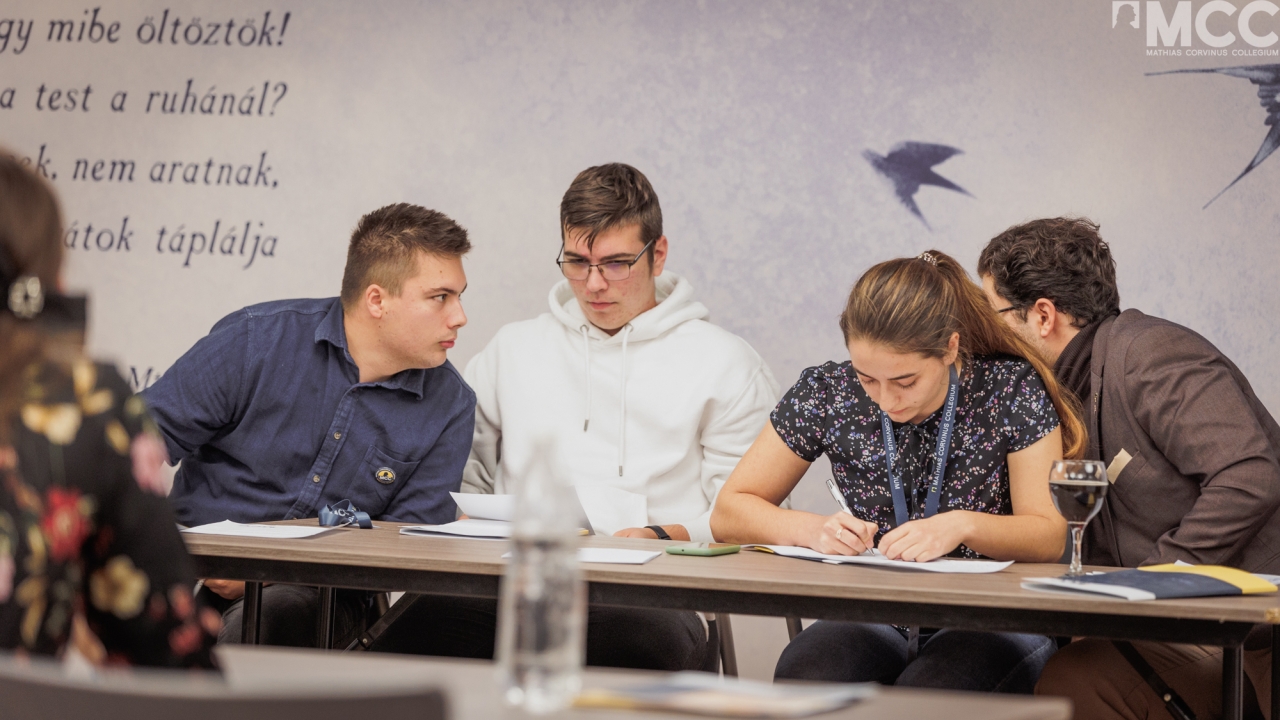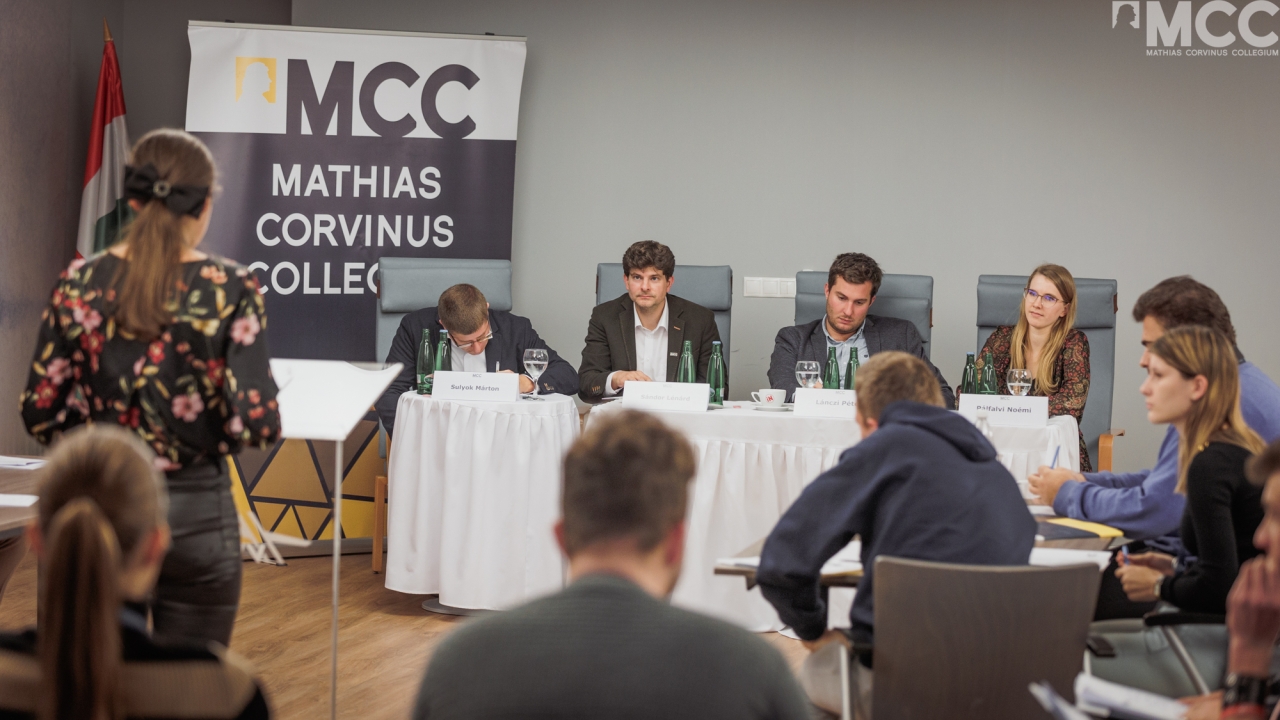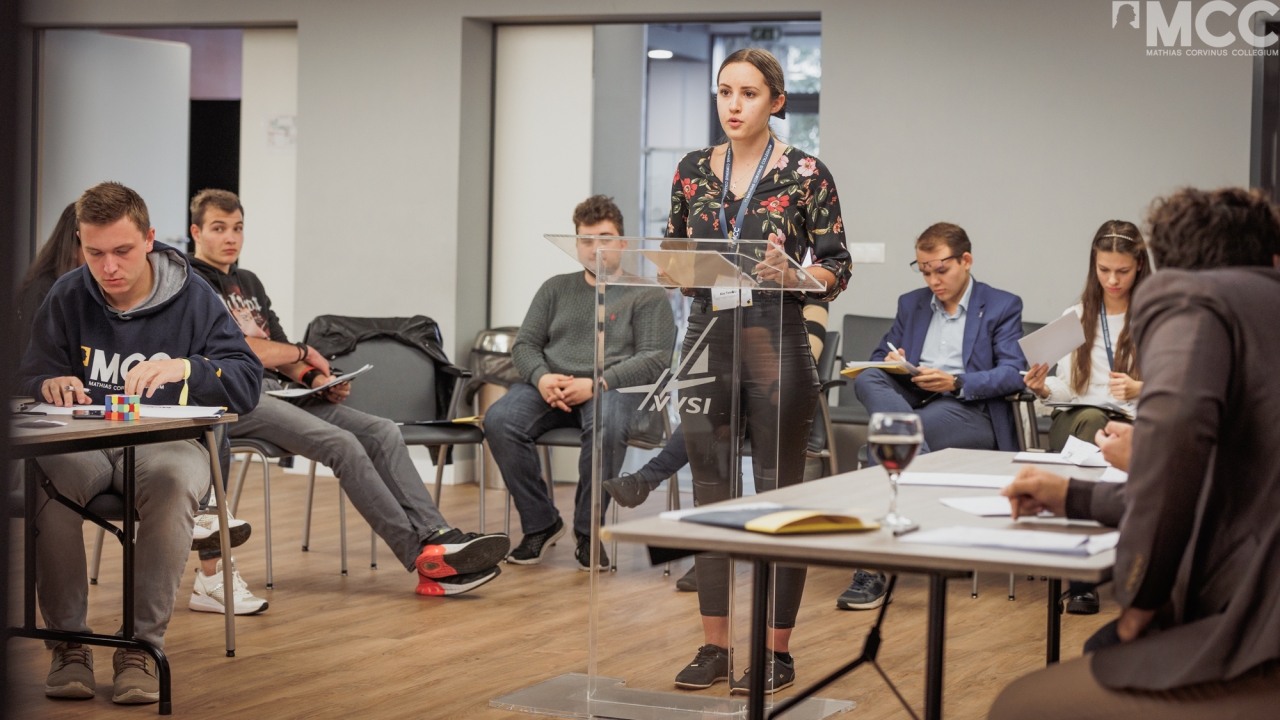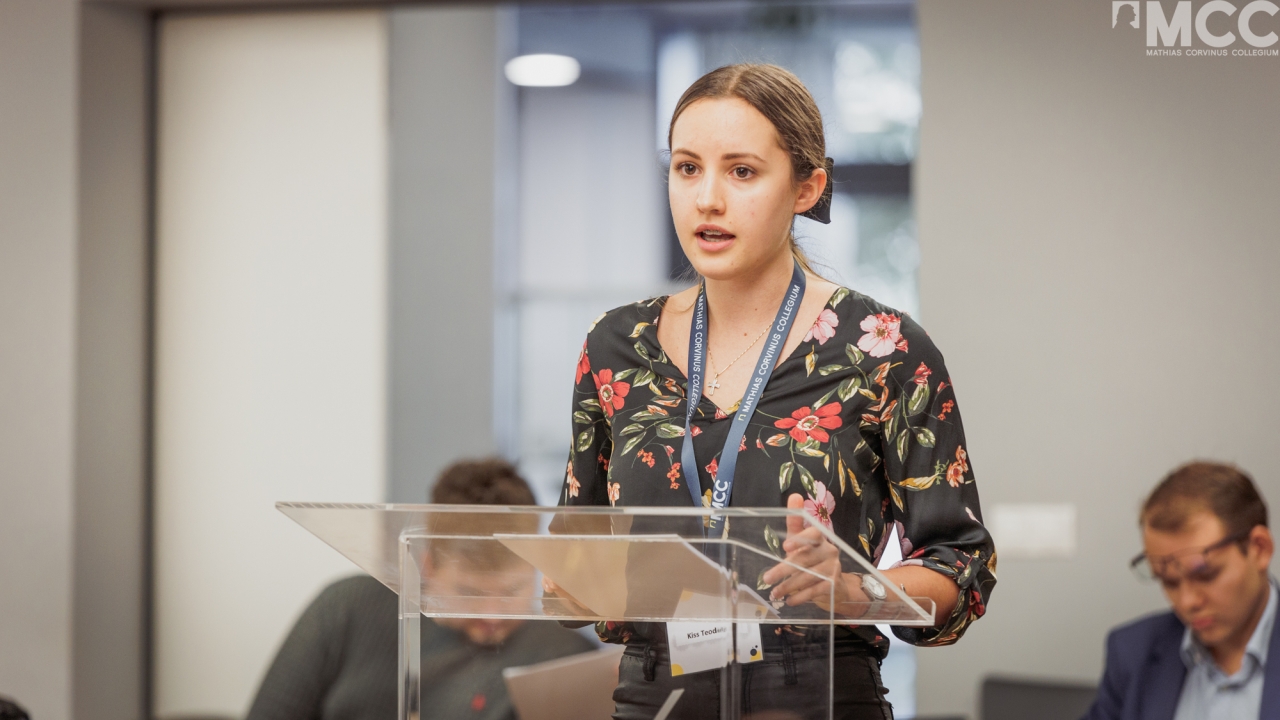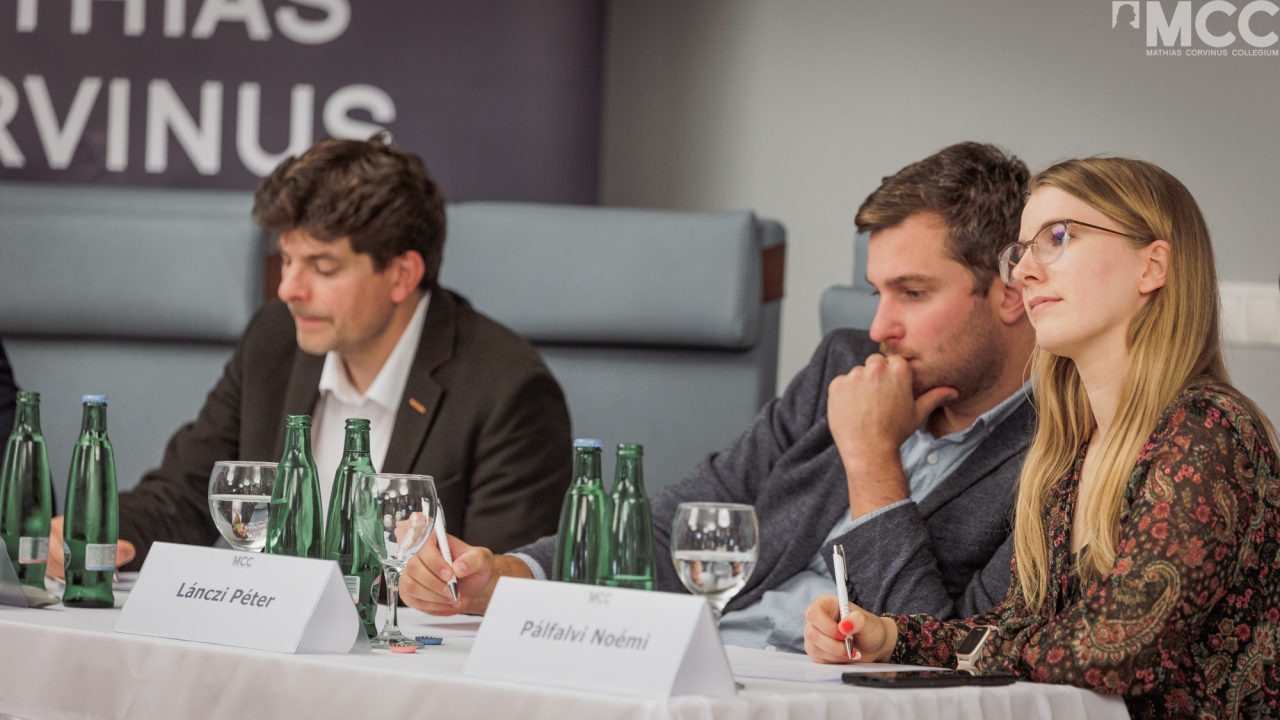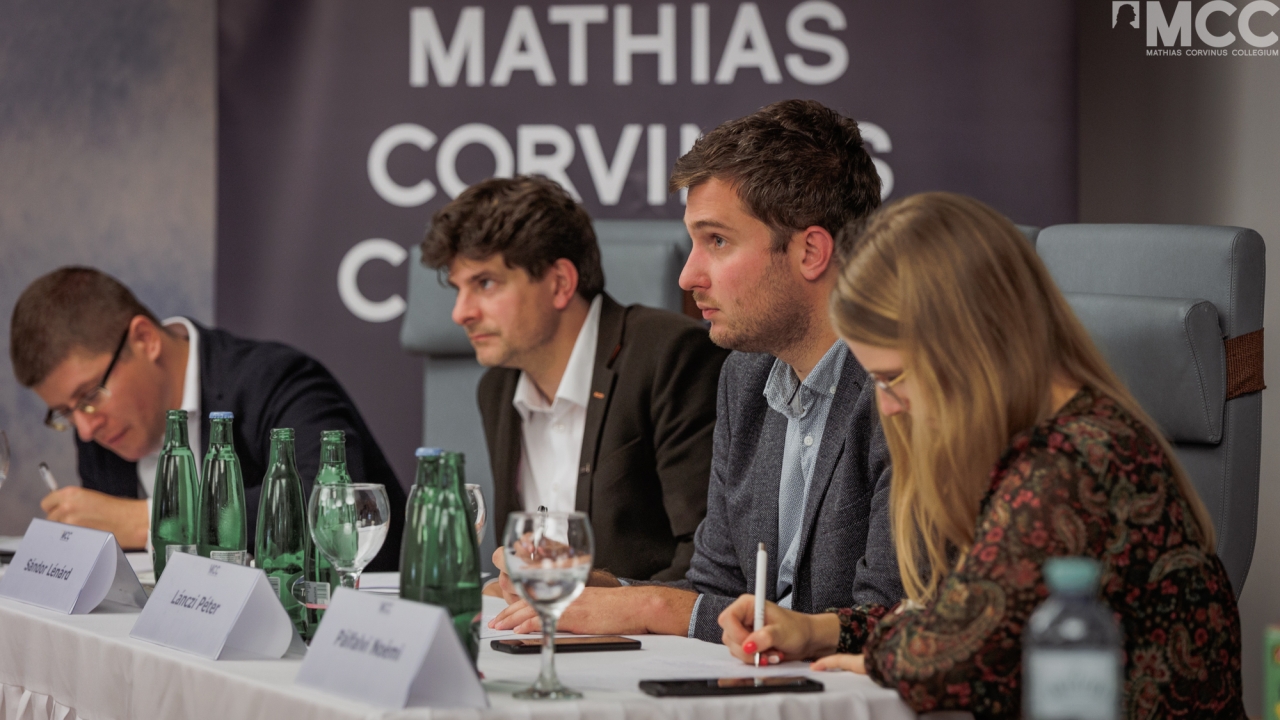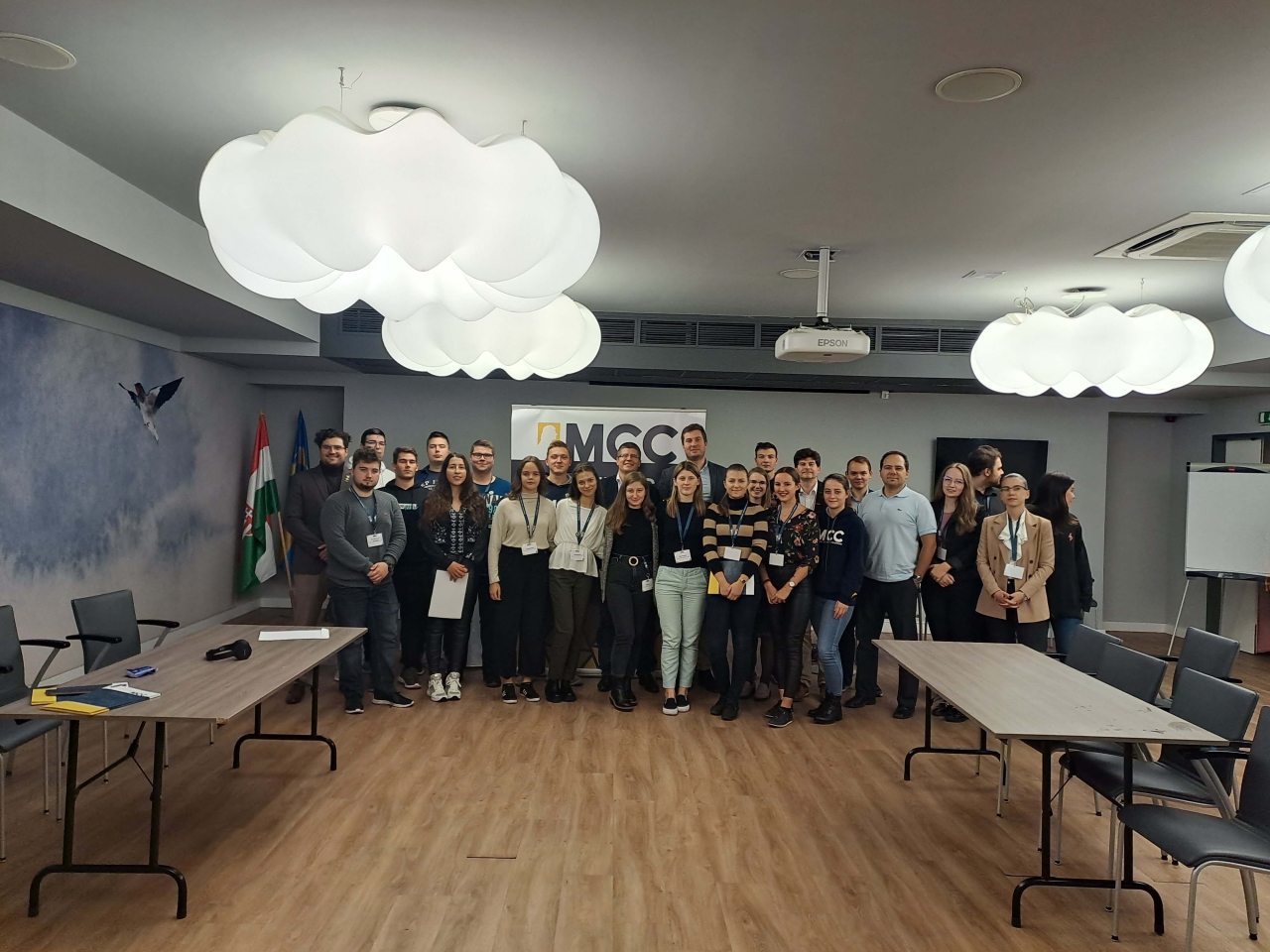Reading time: 3 minutes
The three days long Fall Academy organized by the MCC Law School in Gárdony ended with great success. The theme of the weekend was the future and destiny of Europe, as well as the effects of the armed conflict in the neighboring Ukraine. Renowned Hungarian law professors and a distinguished American constitutional scholar shared their thoughts on these questions. This was followed by interactive group contests among the students. With the goal to establish a tradition, the instructive student competitions addressed key issues of the European integration.
The MCC Law School organized its Fall Academy in Gárdony that focused on the future and values of Europe along with the role of the European integration. As for the academic programs, the students first attended the professors’ conversation. István Stumpf, research professor at the National University of Public Service, former Member of the Constitutional Court and former Minister, László Trócsányi, Rector of the Károli Gáspár University of the Reformed Church and Member of the European Parliament and Balázs Schanda, professor of law at the Pázmány Péter Catholic University and Member of the Constitutional Court had a vivid and honest exchange of ideas on the fundamental questions of Europe. The concept of the European way of life, the European values, the role of Christianity as well as the common European roots were touched upon. The discussion moderated by Márton Sulyok, Head of Center for Public Law also addressed whether a European dream exists and what the real stake of the debate between the federalists and those who believe in the concept of the nations of Europe. The professors also reflected on the tragedy of the ongoing war and the inability or unwillingness of the Europe Union to mediate between the parties.
The afternoon panel discussion was at least as exciting as the professors’ conversation in the morning. Lénárd Sándor, the Head of Center for International Law at MCC moderated the discussion with the renowned constitutional scholar, Ilya Shapiro about the turning points and lessons the development of the American constitutional history shows. The starting question was: what would Alexis de Tocqueville see if he returned to America today? The discussion shed light on the distortions of the idea of democratic self-governance, on the reasons of the burgeoning bureaucracy and centralization, as well as on the role of the federal judiciary played in this process. The threats of the erosion of the principle of “federalism” or subsidiarity were also highlighted, as the saying goes: “he who pays the piper calls the tune”.
These expert panels were followed by the students’ contest. Students were organized into four teams. The first two teams argued for and against whether Europe has specific values, and if so, should the institutions of the European Union protect these values? The second two teams formulated pros and cons on whether the institutional system of the European Union should be reformed and why? The chairman of the jury was Péter Lánczi, Deputy Director General of the Mathias Corvinus Collegium, while its members were Noémi Pálfalvi, Acting Director of International Relations and experts of the Law School. The captivating and exciting team competitions proved to be instructive for everyone; and the winners took their well-deserved prizes. Subsequent contests will also address legal questions that also have public life aspects, which are interesting to law and non-law students alike and are also important to be able to understand the World as intellectuals and Hungarians. To be continued…

